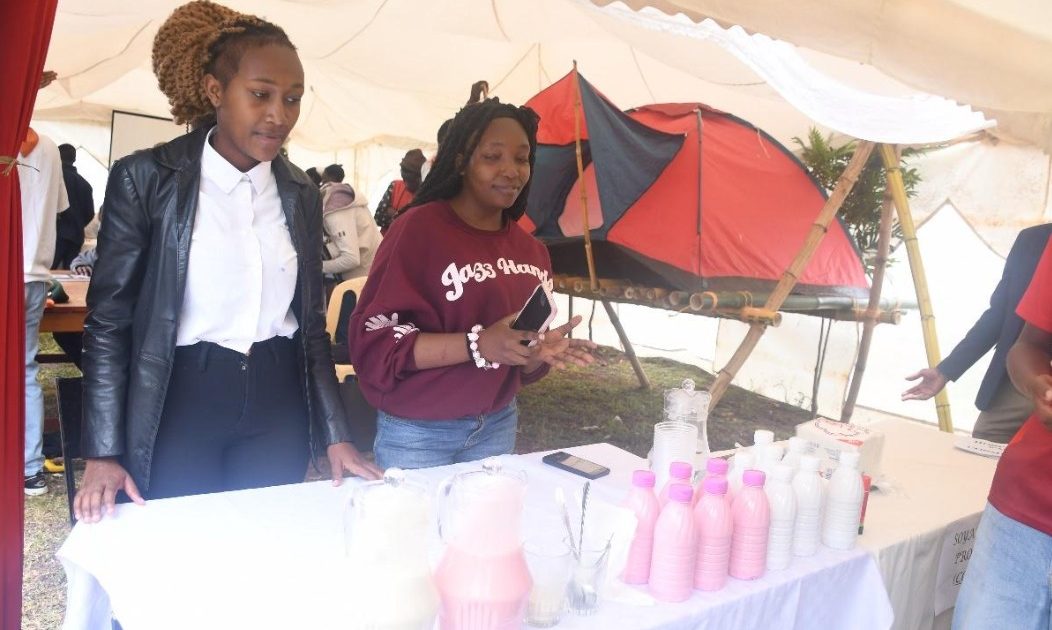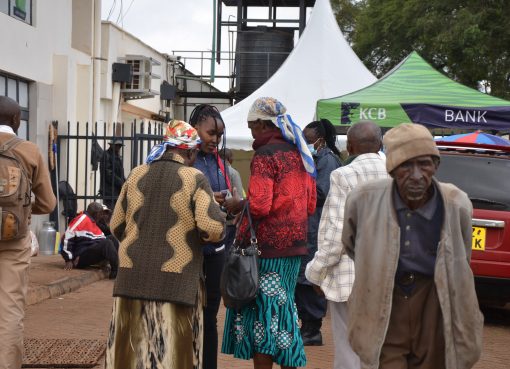Students at Kiambu National Polytechnic (KINAP) have developed a preservative-free soya bean yoghurt, offering a nutritious alternative to traditional yoghurt.
The innovation was showcased during KINAP’s three-day TVET exhibition under the theme “Skills and Innovations in TVET”
The event provided a platform for students to demonstrate how vocational training can drive real-world solutions in food security, health, and entrepreneurship.
Soybeans are a rich source of plant-based protein, containing all nine essential amino acids. The students’ yoghurt innovation aligns with global trends in plant-based diets and sustainable food production.
Additionally, it provides an affordable, locally sourced alternative to dairy products, which are expensive and inaccessible to many Kenyans.
“We were inspired by the fact that soybeans are naturally lactose-free. Many people struggle with dairy intolerance, but this yoghurt is exclusive of dairy products, nutritious, and aids digestion,” said project leader Beatrice Wanjiru.
Class Teacher Obadiah Wanjohi emphasised the health benefits of soya-based yoghurt, including its ability to reduce cholesterol, support heart health, and improve digestion.
“Soya beans are highly nutritious, affordable, and locally available, making them an excellent base for yoghurt production,” he noted.
The yoghurt-making process involves soaking the beans overnight, blending them, and separating the liquid (filtrate) from the residue.
A culture is then added to ferment the liquid before flavours such as vanilla or strawberry are mixed in. After cooling, the yoghurt is ready for consumption.
Through rigorous experimentation, the students achieved a smooth, creamy consistency without using any artificial preservatives.
They also highlighted that the process can be easily replicated at home or scaled up for commercial production.
Speaking at the official opening of the exhibition, KINAP Principal, Sammy Kamau, commended the students’ innovation, stating, “This project is a testament to the power of technical education. It can empower local farmers, create business opportunities, and enhance food security.”
Stakeholders at the exhibition, including industry experts, expressed interest in further developing the project. Some suggested potential collaborations with agribusiness entrepreneurs and cooperatives to expand the yoghurt’s production and distribution.
With soya beans widely cultivated in Kiambu County, the innovation presents an opportunity for economic empowerment through small-scale businesses and value addition in agriculture.
The exhibition also featured other groundbreaking student projects, reinforcing the role of TVET institutions in preparing students for the job market and entrepreneurship.
By equipping learners with hands-on skills, institutions, including KINAP, are helping to drive Kenya’s economic growth and sustainable development.
As the event concluded, stakeholders expressed optimism that such innovations could transform Kenya’s agricultural and food industries.
The students hope to refine the yoghurt further and explore opportunities for large-scale production.
The soya bean yoghurt project not only showcases the creativity of Kenyan youth but also reinforces the importance of investing in TVET education.
By Natasha Lelenguya





